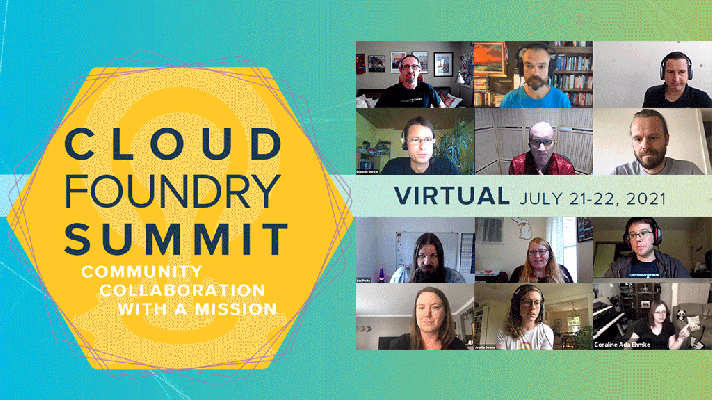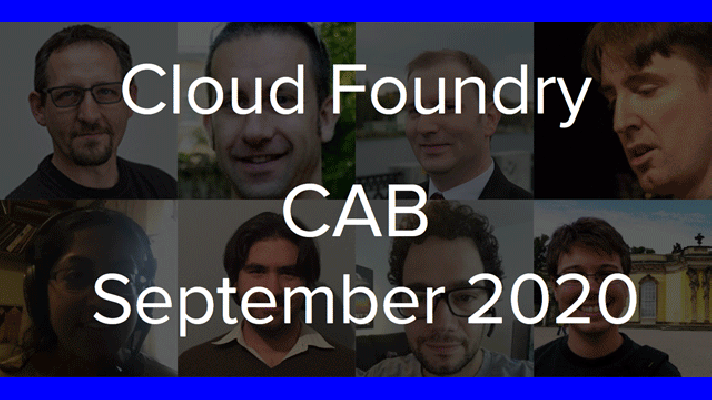Top 100 Quotes from Cloud Foundry Summit North America 2018
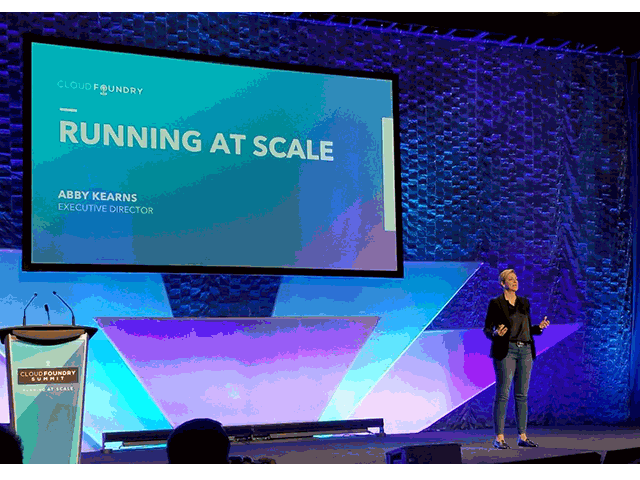
With “running at scale” as a moto, Cloud Foundry Summit 2018 in Boston saw the continued growth of the ecosystem, which now can boast of 9,400 commits, 3,973 pull requests, 4,900 services, 3,160 contributors, and 40 active projects. At this year’s conference, 1,525 registered attendees showed up for the 144 keynotes, breakouts, and lightning talks.
Running at scale
- “The participants in the Boston Marathon earlier this week were certainly running at scale, so we’ve chosen that theme for the Cloud Foundry Summit this week because it applies to what our participants are doing, as well.” —Abby Kearns, Cloud Foundry Foundation
- “We started out with just four to six applications running in production. Now, we’ve scaled to over 100 applications in our production environment and in non-production, we have over 1,000.” —Alex Rubin, Kaiser Permanente
- “We now have 40,000 applications running on Cloud Foundry in our public cloud in six regions. Half of that was created in the last 12 months.” —Johan den Haan, Mendix
- “We’ve deployed 18,000 containers with 1,700 developers and only 10 people on the operations team.” —Chuck Knostman, T-Mobile
- “We now have 43 service regions and continue to grow.” —Hong Choing, Alibaba Cloud
- “We’re doing about 30 cf-pushes a day.” —Chuck Knostman, T-Mobile
- “We can get new developers to deliver code into production for feedback inside a day. Not that long ago, this took up to 23 days best case scenario.” —Justin Stone, Liberty Mutual
- “We’re running 12 BOSH Directors, 6,000 container instances in multiple clouds running three completely different products and using half of the same services in the middle.” —Andy Rosequist, Zipcar
- “The systems that took several hours to process, now takes a couple of minutes, and we’re taking them down to a couple of seconds.” —Enes Yildirim, Boeing
- “We have over 800 developers who are writing code for Cloud Foundry and deploying to Cloud Foundry day in and day out. It’s amazing to see how quickly it picked up.” —Alex Rubin, Kaiser Permanente
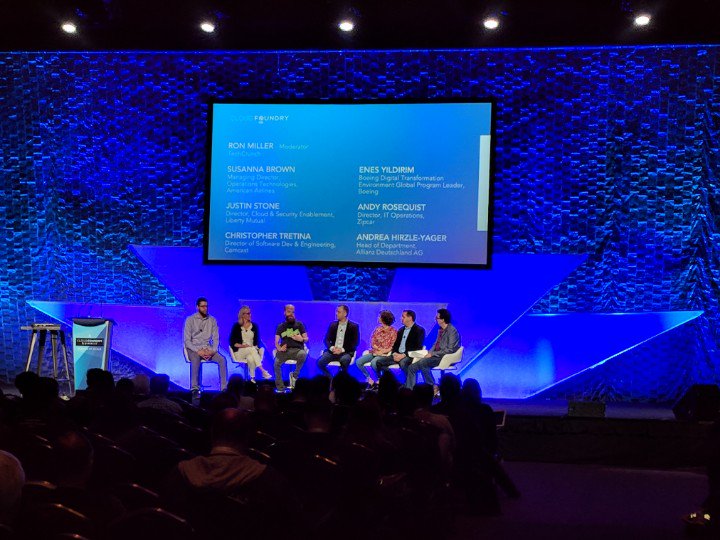 Enes Yildirim (Boeing), Susanna Brown (American Airlines),
Enes Yildirim (Boeing), Susanna Brown (American Airlines),Christopher Tretina (Comcast), and Ron Miller (TechCrunch)
Digital transformation
- “It’s going from a culture of fear into a culture of trust. It’s about building trust across the organization.” —Andy Rosequist, Zipcar
- “Change is hard. We all need to accept that we need to change. Demonstrating by example is very good, and helping people to get through that change is extremely important”. —Enes Yildirim, Boeing
- “Cloud Foundry allowed us to focus on the things we really needed to change that grew over the last 100 years rather than worrying about the installation.” —Enes Yildirim, Boeing
- “The automotive industry is changing and changing quickly. A car is no longer something that gets you from point A to point B. It’s now a mobile device.” —Abby Kearns, Cloud Foundry Foundation
- “By bringing intelligence into the mobility continuum, it will open up opportunities around work/cities we never thought of before—focus on automotive is not about the experience of the driver.” —John Roese, Dell EMC
- “Embrace the people that are willing to take the first steps.” —Susanna Brown, American Airlines
- “The fact that a company is able to IPO—with this to be a major part of its portfolio—really says that Cloud Foundry is not only an enablement for end users that are working really hard to digitally transform, but is also helping companies to build other solutions on top.” —Abby Kearns, Cloud Foundry Foundation
- “The most important piece is for the entire organization to realize that it’s not an IT change. It’s not just a technology change. The transformation has to happen within the entire company.” —Andrea Hirzle-Yager, Allianz
- “We’re now able to deploy Cloud Foundry on top of container-based infrastructure. This gives us the ability to place Cloud Foundry workloads in any of our data centers and regions. Ultimately, this allows us to give the isolation and dedicated environments people are looking for with a cloud-like model.” —Don Boulia, IBM
- “You get used to doing things a certain way and to change and have that leap of faith is a tough thing for people to go through. Once we did, it just caught on like wildfire.” —Chuck Knostman, T-Mobile
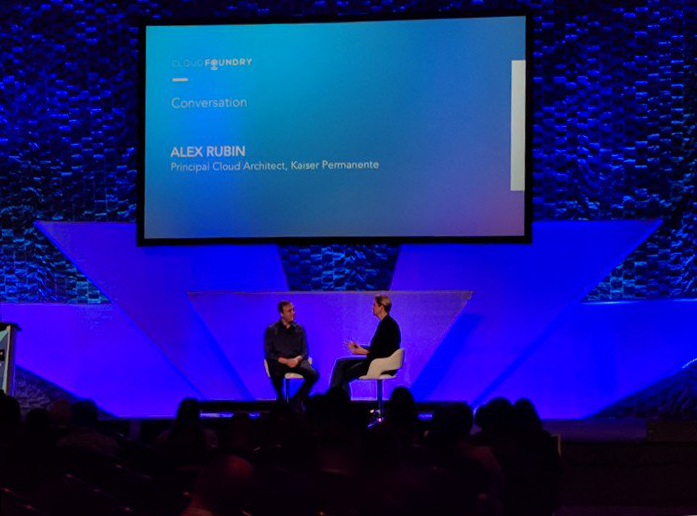 Alex Rubin of Kaiser Permanente and Abby Kearns of the Cloud Foundry Foundation
Alex Rubin of Kaiser Permanente and Abby Kearns of the Cloud Foundry Foundation
Community and collaboration
- “By creating better engagement and availability for our engineers to see the immediate results of their actions, they are able to interact directly with our customers. That’s enabled us to really cut those feedback cycles down.” —Andy Rosequist, Zipcar
- “The operations teams are loving this because they have someone else that operates all the hardware. Everything else is down below, and they can focus on just helping apps run.” —Chuck Knostman, T-Mobile
- “By having that speed of execution, there’s an incentive to talk to each other because you can actually see the results of that conversation go live and impact directly.” —Andy Rosequist, Zipcar
- “We as engineers want to innovate. We don’t want to reinvent the wheel. If we can work together and just innovate faster, we benefit from that.” —Chen Goldberg, Google
- “It’s not just about infrastructure, it’s also about creating community knowledge.” —Susanna Brown, American Airlines
- “User-centric design means teams spend less time building tech manuals, and users don’t have to lose time learning the tool instead of using it.” —Keith Strini, Pivotal
- “I’m proud to see how Cloud Foundry keeps handling change over time and is now handling Kubernetes so well.” —Dave Nielsen, Redis Labs
- “DevOps teams hate friction, so we do everything we can to reduce it.” —Chuck Knostman, T-Mobile
- “We’ve found a common language for developers and operators.” —Bob Johnson, Humana
- “Cloud Foundry is truly a worldwide phenomenon, and we are now reaching developers in all corners of the world.” —Abby Kearns, Cloud Foundry Foundation
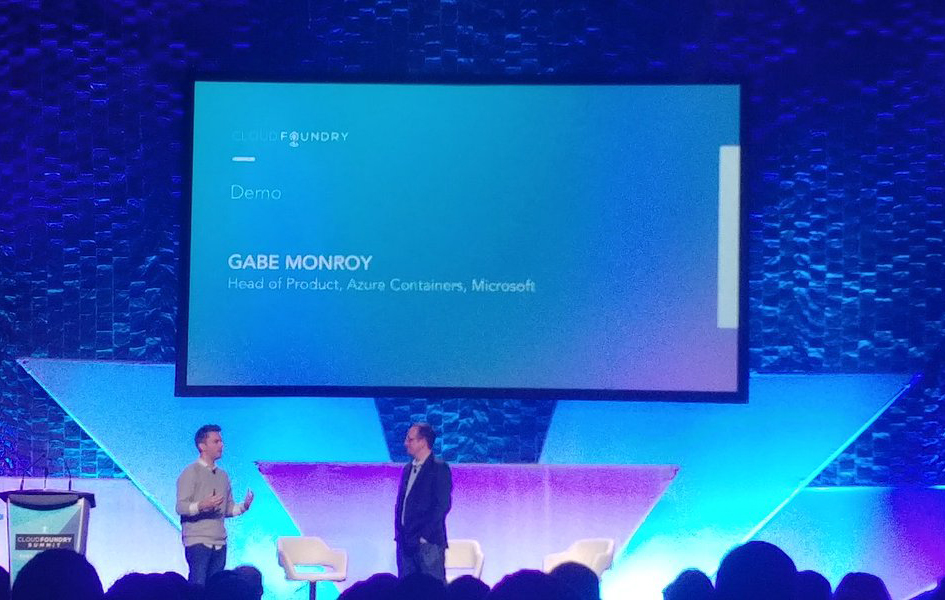 Gabe Monroy of Microsoft
Gabe Monroy of Microsoft
Customer experience
- “With Cloud Foundry, we’ve introduced about 60% improvement in our availability, which has dramatically enhanced the ability of our customers to interface with self-service and our front-line employees to interface with our customers.” —Christopher Tretina, Comcast
- “We’re now able to deploy with such frequency that our business partners can immediately see that impact. It’s no longer a matter of waiting 6–12 months to see what they want to see.” —Christopher Tretina, Comcast
- “The difference is not just the technology, but the process changes within the entire life cycle of the product. You are so much more directly engaged with your customer, and you get constant feedback.” —Andrea Hirzle-Yager, Allianz
- “We strongly believe in freedom of choice for Cloud Foundry users.” —Thomas Di Giacomo, SUSE
- “It’s all about giving customer choice. We want customers to operate anywhere in the world.” —Hong Choing, Alibaba Cloud
- “Cloud Foundry has really enabled us to make what seems to be impossible in the past suddenly possible.” —Christopher Tretina, Comcast
- “We’re enabling developers huge productivity gains. They’re touching more of their customers around the world, and we need to keep those people safe.” —Molly Crowther, Pivotal
- “From an enterprise perspective, with Cloud Foundry and Kubernetes—we need both. I’m excited to see those things coming together.” —Matthew Curry, Allstate
- “Through Cloud Foundry, our ISV partners have a much richer and more accessible path to market.” —Gabe Monroy, Microsoft
- “What I love about Cloud Foundry is the open service broker API, providing a standard, scalable, reliable way to enable applications to connect to any service.” —Gabe Monroy, Microsoft
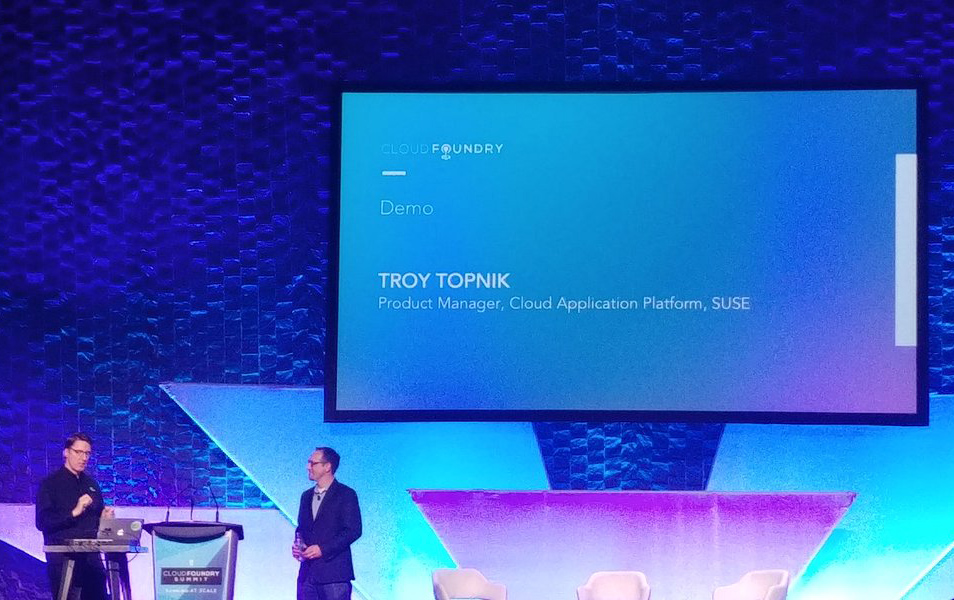 Troy Topnik of SUSE
Troy Topnik of SUSE
Cloud-native and security
- “Using a structured platform like Cloud Foundry, we at Allstate have created an environment where developers move quickly but they do so with safety.” —Matthew Curry, Allstate
- “Security is shifting to the left. That means in the timeline of the delivery of your software, you want to take security from being the gatekeeper at the end and pushing it as far forward in the process as possible.” —Molly Crowther, Pivotal
- “You’re getting a platform that’s doing a lot for you, and you don’t need to rely on your teams to do. It allows you to be faster and your teams to be faster because you don’t have to put them to work building security into a platform for you.” —Molly Crowther, Pivotal
- “As we scale as a community, security becomes a bigger part of that. It’s not just making sure everybody’s working together, it’s also about making sure everybody’s secure.” —Molly Crowther, Pivotal
- “We’ve leveraged Pivotal Cloud Foundry as a part of our build-measure-learn cycle and we’re able to improve that iteration. We started off with a couple of months instead of a couple of years. Now, we’re able to iterate on a daily basis.” —Enes Yildirim, Boeing
- “It’s wonderful to have the ability to deploy stuff when you want to.” —Holly Moody, Zipcar
- “Cloud Foundry as a platform is enabling security to reach millions more people everyday.” —Molly Crowther, Pivotal
- “Speed is the new security.” —Capt. Bryon Kroger, United States Air Force
- “Undeployed code is at best a depreciating asset. Every minute delay…decreases the value (and) increases the risk.” —Kyle Campos, CSAA Insurance
- “With Cloud Foundry, we created an environment where developers can move forward and innovate with safety.” —Matthew Curry, Allstate
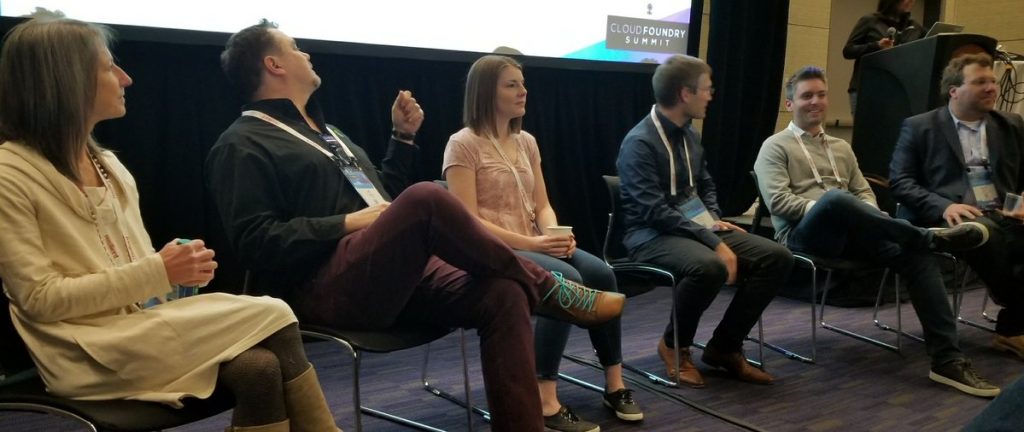 Cornelia Davis (Pivotal), Jeff Hobbs (SUSE), Meaghan Kjelland (Google),
Cornelia Davis (Pivotal), Jeff Hobbs (SUSE), Meaghan Kjelland (Google),Bernd Krannich (SAP), Gabe Monroy (Microsoft), Simon Moser (IBM), Swarna Podila (CFF)
Kubernetes
- “I believe Cloud Foundry and Kubernetes should exist as layers in a stack. If you put them side-by-side, you’ll never really integrate them.” —Michael Maximilien, IBM
- “Yes, I lead the Cloud Foundry Garden team, but it’s a practical reality that many, many developers are already using Kubernetes.” —Julian Friedman, IBM
- “There would be great benefit in making Cloud Foundry and Kubernetes feel like one tool.”
—Meaghan Kjelland, Google - “Cloud Foundry provides a great developer experience. But why not use Kubernetes as a CF scheduler?” —Julian Friedman, IBM
- “I would love to have users talk about Kubernetes the way they talk about Cloud Foundry.”
—Chen Goldberg, Google - “The sooner we can get the blending of Cloud Foundry and Kubernetes done, the sooner we can focus on innovation. The value is higher up the stack.” —Simon Moser, IBM
- “Kubernetes can be thought of as infrastructure dial tone. Its value-add comes from putting it in a layer.” —Cornelia Davis, Pivotal
- “Cloud Foundry is a workflow, and it could take more advantage of the Kubernetes container management system.” —Jeff Hobbs, SUSE
- “There is more integration potential between Kubernetes and Cloud Foundry and many ways to blend them. Shared services categories and a common author model are a couple I can think of.” —Simon Moser, IBM
- “Cloud Foundry is the best platform for developers building modern applications, and Kubernetes brings best-of-breed capabilities to that.” —Abby Kearns, Cloud Foundry Foundation
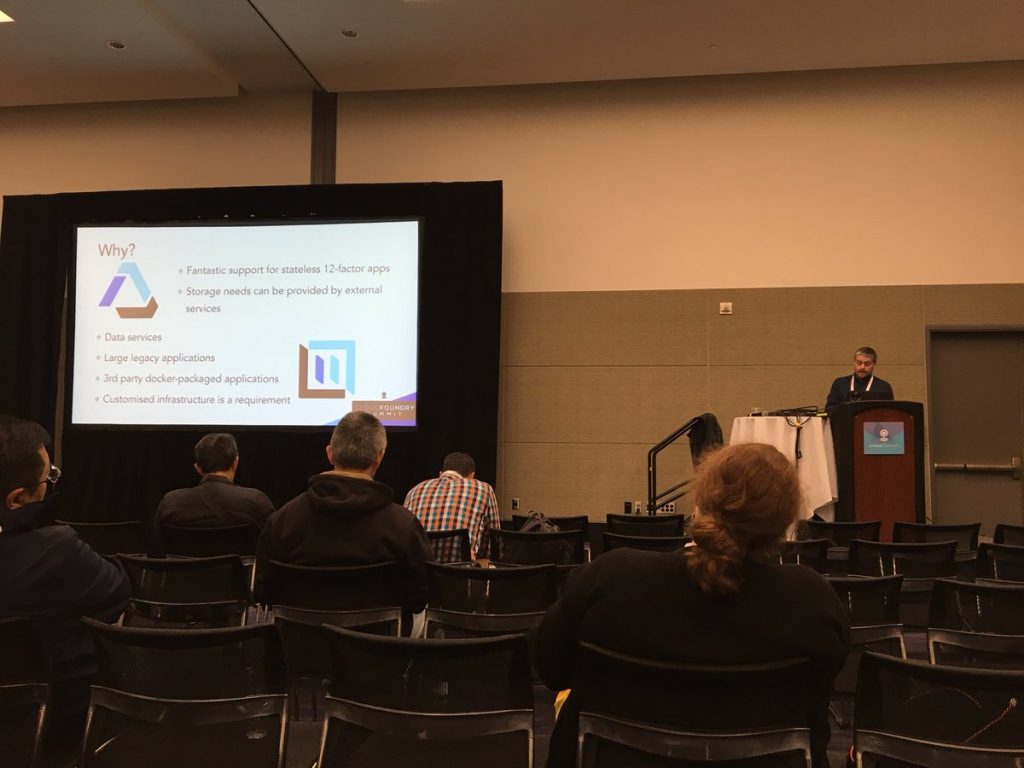 Konstantin Semenov of Pivotal
Konstantin Semenov of Pivotal
Openness and interoperability
- “This is now truly not just a multi-vendor effort, but a multi-platform effort. It’s just a great story for what can happen on open source.” —Gabe Monroy, Microsoft
- “By having open standards, accessibility, and open source, we can build composable systems and really modernize, and mix, and match different frameworks, languages, and platforms.” —Chen Goldberg, Google
- “40% of our members are end users. You’re not only using open source to change your company, but you’re participating in the open-source community.” —Abby Kearns, Cloud Foundry Foundation
- “With open source and the ecosystem, we want to bring what we have learned, but we also need the community because we are learning so many new things. Kubernetes would not have been the same without partners that are so experienced with on-prem deployments.” —Chen Goldberg, Google
- “The open-source mentality and collaboration that comes with Cloud Foundry has really led us to change dramatically the way we engage with our business partners.” —Christopher Tretina, Comcast
- “I do my job at Microsoft as having to empower the tens of millions of developers who enter the market every year. We need everyone’s collective ideas in order to make these folks succeed. When I see open-source projects and foundations like this start to work together effectively, it gives me hope that we can do the right thing for these folks.” —Gabe Monroy, Microsoft
- “The Cloud Foundry community is different than most traditional open-source communities in that it’s largely made up of enterprise users who are not used to being very community-driven.” —Matthew Curry, Allstate
- “The way that you provide a healthy culture for an open-source community like ours is that you can’t have vendors competing over each other on security. It’s something we work together on.” —Molly Crowther, Pivotal
- “Cloud Foundry is only successful because each and everyone of you are participating in it. It is and open-source project and for it to continue to thrive and grow, its needs each and everyone of you to be part of that journey.” —Abby Kearns, Cloud Foundry Foundation
- “By using BOSH as our underlayer, we’re able to cheaply move to different clouds for the environment that works best.” —Andy Rosequist, Zipcar
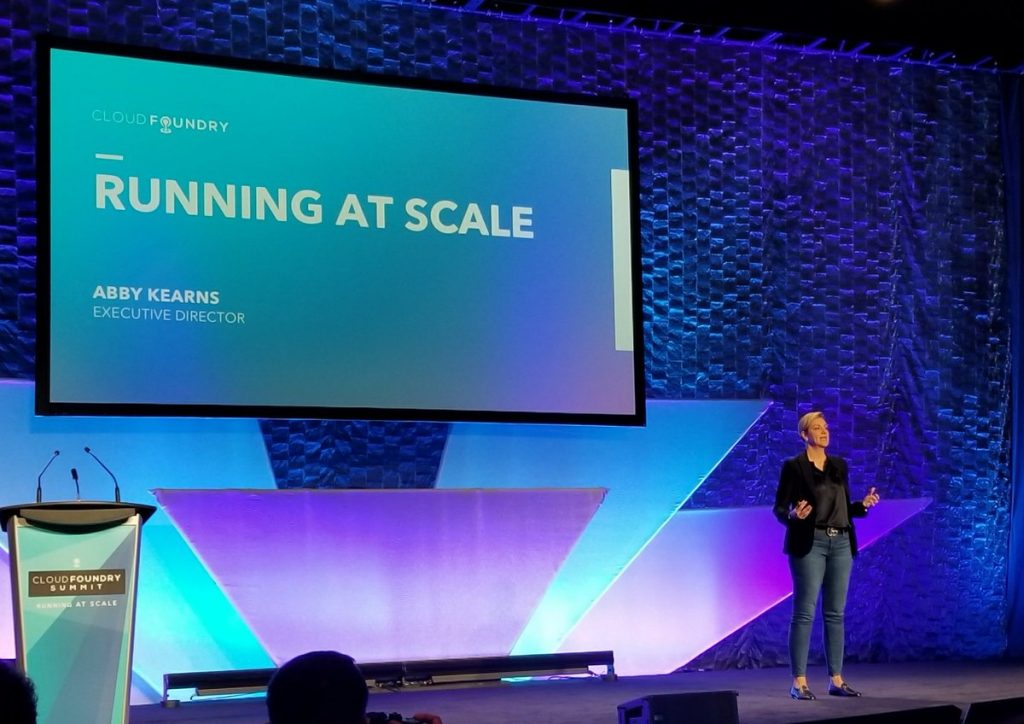 Abby Kearns of the Cloud Foundry Foundation
Abby Kearns of the Cloud Foundry Foundation
Tips and insights
- “The biggest thing is being able to have that motivation to transform into something better.” —Holly Moody, Zipcar
- “Just because you can run something like a data store in a container, doesn’t mean you should.” —Gabe Monroy, Microsoft
- “People think of containers equaling apps, but I think of it as more like infrastructure.” —Cornelia Davis, Pivotal
- “Focus on the infrastructure platform side of things. Train those developers, train those operations guys. Put the automation on top. Make it frictionless.” —Chuck Knostman, T-Mobile
- “Expect change. People tend to think that going into cloud will solve all their problems. While that is true, it’s different. You have to embrace.” —Alex Rubin, Kaiser Permanente
- “Start small and then scale.” —Bob Johnson, Humana
- “People are happy when they learn. When they perform after learning, they are happy.” —Subbu Allamaraju, Expedia
- “Cloud Foundry is such a profound technology, we find that some people must unlearn old practices before learning the new ones they need.” —Vijay Tirumalai, Dell EMC
- “We keep creating more data because we have more sensors. But with distributed models, you run into roadblocks.” —John Roese, Dell EMC
- “Security is everyone’s job. If we’re going to go faster as an industry, people are going to have to get out of under their compliance teams. They need to understand how to make security not everyone’s problem, but everyone’s value proposition.” —Molly Crowther, Pivotal
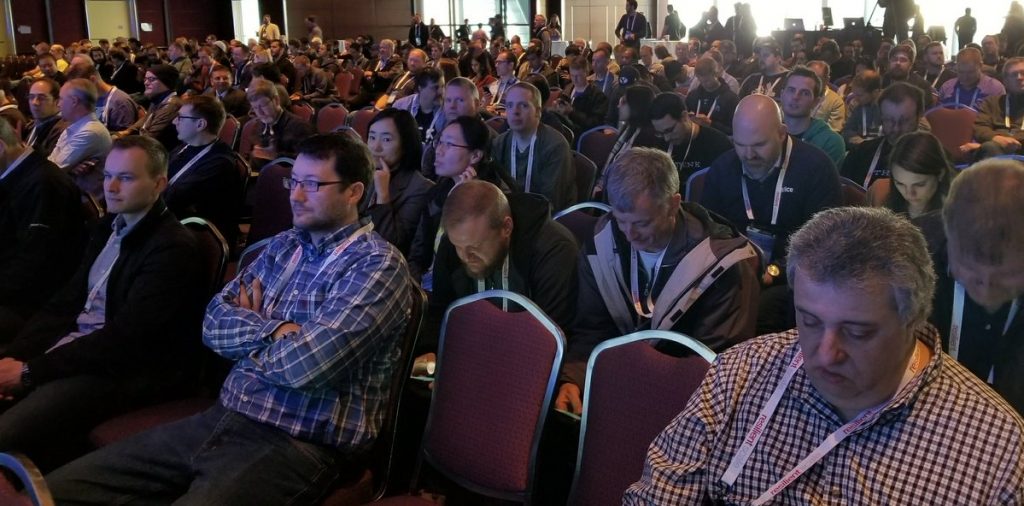 Day 1 of the Cloud Foundry Summit 2018
Day 1 of the Cloud Foundry Summit 2018
Casual and profound
- “We’re hearing a lot about cloud. We got retail in the cloud, banks are in the cloud, and even pizza delivery is now in the cloud.” —Abby Kearns, Cloud Foundry Foundation
- “How can we tighten processes and feedback loops? It’s important to go fast, but don’t break things.” —Bob Johnson, Humana
- “I like to fly fish, and most of the fly fishing community looks just like me. I’m working to change this and change Cloud Foundry community, as well.” —Steve Greenberg, Resilient Scale
- “We’ve created a highly opinionated solution that uses the parts of Cloud Foundry we like, with other parts we wrote ourselves.” —Andy Rosequist, Zipcar
- “As scaling occurs, the bottleneck may not be the app developers but where the data is stored. Companies usually don’t know the value of their data until they go and use it.” —John Roese, Dell EMC
- “Growth mindset with a focus on learning and not just performing is extremely helpful for teams and individuals to get unstuck from tough situations.” —Subbu Allamaraju, Expedia
- “You can tell it is a cloud-native demo when you see the YAML.” —Chip Childers, Cloud Foundry Foundation
- “(CF Dev) is a great tool to kick the tires with Cloud Foundry. Get started as quickly as possible.” —Stephen Levine, Pivotal
- “cf better-push.” —Zach Robinson, Pivotal
- “Move small grains of sand, and you can move the whole mountain.” —Subbu Allamaraju, Expedia
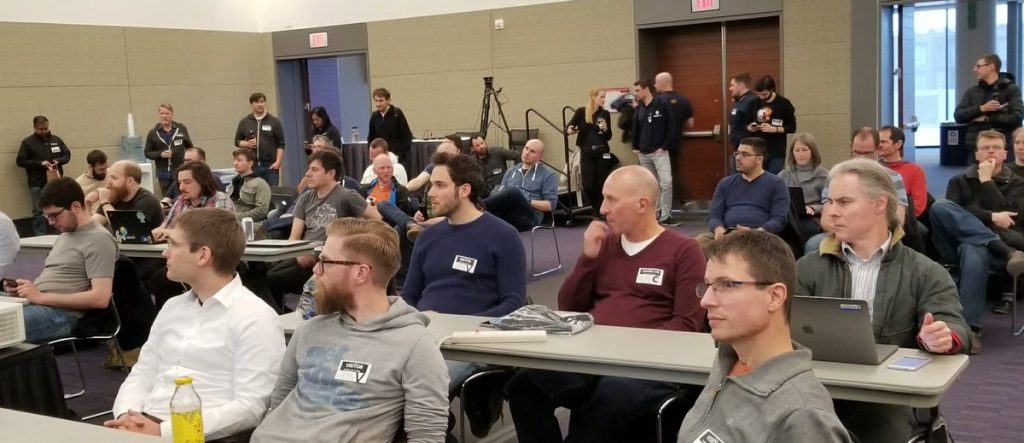 The Unconference before the Cloud Foundry Summit 2018
The Unconference before the Cloud Foundry Summit 2018
Moving forward
- “Five years from now, we’ll be living in a highly diffused and distributed environment. Code needs to be properly placed along with the data that it uses to be properly effective.” —John Roese, Dell EMC
- “It’s time to unify Cloud Foundry app runtime with the Kubernetes runtime.” —Gabe Monroy, Microsoft
- “We need a whole lot of integration points.” —Bernd Krannich, SAP
- “This year in 2018, at the Foundation, we’re really focusing on two things: strengthening our ecosystem and cultivating our community.” —Abby Kearns, Cloud Foundry Foundation
- “For years, IT has often been thought of as a bottleneck, but with Cloud Foundry it has become a change agent.” —Cornelia Davis, Pivotal
- “You care about flexibility, portability of workloads, and you’re able to save time and money. So, we think about that and we think about where we’re going to go, those continue to be a focus for us for the rest of this year.” —Abby Kearns, Cloud Foundry Foundation
- “We’re leaving the era of nice, comfy, homogeneous compute in the cloud. (That sounds) Terrifying. We have a lot of work to do.” —John Roese, Dell EMC
- “Automotive industry is where scaling will really matter and must be addressed adequately over next 10 years and will effect other industries as a result (e.g., healthcare).” —John Roese, Dell EMC
- “I’m so excited to see the Cloud Foundry and Kubernetes communities starting to merge. We need everyone’s collective ideas to make this work.” —Gabe Monroy, Microsoft
- “How many people here are in the security channel in Slack? Only a couple? It should be everybody.” —Abby Kearns, Cloud Foundry Foundation
Kubernetes was one of the major emerging technologies in 2017. Unsurprisingly, it was one of the hot topics covered during the summit and the CAB meeting. With decentralization seemingly becoming the next big trend, will we see it also influence the growth of Cloud Foundry?
The next Cloud Foundry Summit will be held in Basel, Switzerland, on October 10–11, 2018. See you then!
with assistance from Roger Strukhoff.




